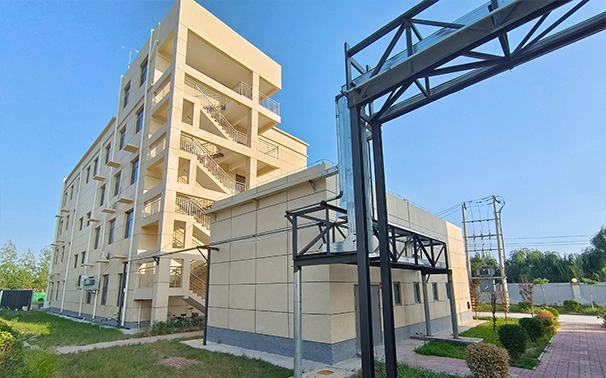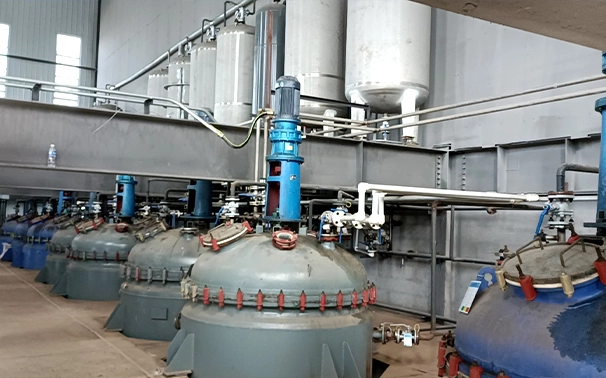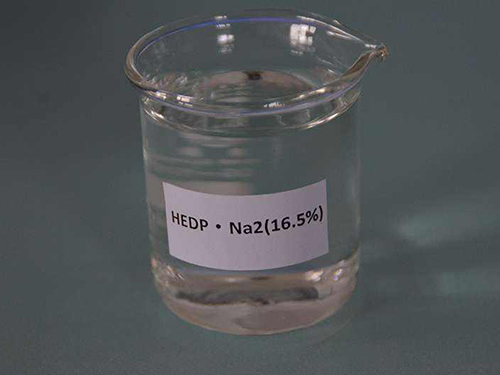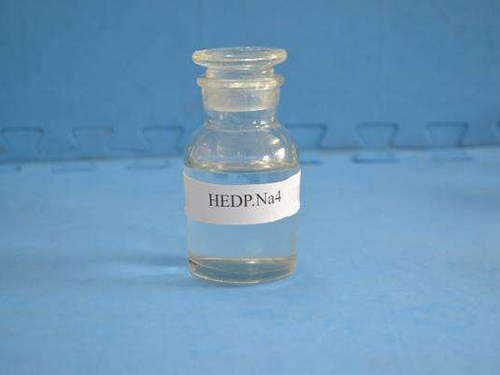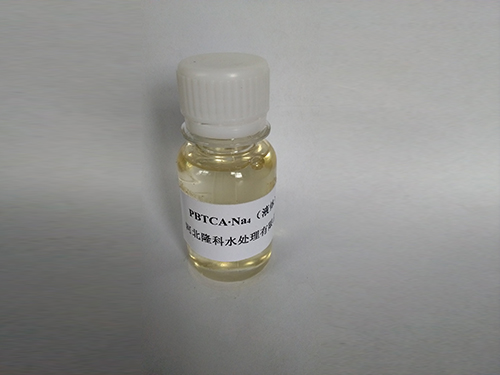Products, Salts of Phosphonates
Hebei Longke Water Treatment Co., Ltd. offers a comprehensive range of organic phosphonates that are widely recognized for their exceptional performance in industrial and municipal water treatment systems. With multifunctional benefits similar to those of EDTA chelating agents, our phosphonate products—particularly 1-hydroxyethylidene-1,1-diphosphonic acid (HEDP) and its sodium salts (HEDP-Na₂, HEDP-Na₄)—stand out as highly efficient tools for scale inhibition, corrosion control, and metal ion sequestration. These chelating compounds effectively bond with metal ions such as calcium and magnesium, which are typically responsible for scale formation in pipelines, heat exchangers, and other critical equipment.
HEDP’s structure allows it to act not just as a chemical chelating agent, but also as a corrosion scale inhibitor, making it a smart, dual-action choice for system maintenance. By forming stable complexes with dissolved metal ions, HEDP prevents crystal nucleation and growth, which can lead to scaling. Simultaneously, it forms a thin, protective film on metal surfaces, significantly reducing the risk of corrosion. This dual function minimizes the need for using separate scale inhibitors and boiler corrosion inhibitors, thereby simplifying treatment protocols and lowering operational costs.
Unlike many traditional inhibitors, Longke's HEDP formulations maintain high stability under extreme conditions, including high pH, high temperature, and high water hardness. This makes them particularly suitable for demanding systems such as industrial boilers, open and closed-loop cooling towers, steel processing circuits, and power plant water treatment lines. Even in harsh environments, these phosphonates deliver consistent, long-lasting protection, contributing to extended equipment life and improved operational efficiency.
What also sets Longke apart is our commitment to providing technical support alongside chemical solutions. We operate a dedicated laboratory to test water quality parameters, simulate system conditions, and fine-tune product performance according to customer needs. Our expertise in industrial corrosion inhibitors enables us to deliver results that are not only effective but also sustainable and environmentally responsible. From chelating reagents to full-spectrum corrosion inhibitors for water treatment systems, Longke’s organic phosphonates embody quality, reliability, and innovation. Whether you're operating a petrochemical facility, a municipal water plant, or a high-pressure boiler, our HEDP-based solutions offer clean results, lower maintenance costs, and peace of mind every step of the way.
-
CAS លេខ 7414-83-7
-
CAS No. 29329-71-3 (x-Na), 3794-83-0 (4-Na)
-
CAS No.: 3794-83-0
-
CAS លេខ 40372-66-5
What Makes Longke’s Organic Phosphonates Ideal for Water Treatment?
Longke’s organic phosphonates, particularly 1-hydroxyethylidene-1,1-diphosphonic acid (HEDP), are widely recognized in the industry for their outstanding performance in modern water treatment systems. Designed for multi-functional protection, HEDP combines scale prevention, metal corrosion inhibition, and chemical resilience, making it a reliable and cost-effective phosphonates solution across diverse industrial environments.
One of the primary strengths of HEDP lies in its exceptional chelating capability. As a chelating reagent, it effectively binds to multivalent metal ions such as calcium (Ca²⁺), magnesium (Mg²⁺), and iron (Fe³⁺). These ions are commonly found in industrial water supplies and, if left unmanaged, can react to form insoluble salts like calcium carbonate or calcium sulfate. These compounds are responsible for scale deposits in critical equipment such as cooling towers, boilers, and circulation pipes. By sequestering these ions before precipitation occurs, HEDP keeps water systems clean and running smoothly, minimizing energy loss and maintenance costs. In addition to its descaling abilities, HEDP functions as a corrosion rust inhibitor, forming a thin but durable film on metal surfaces including steel, copper, and aluminum. This invisible layer protects against the harsh effects of water and oxygen exposure, which are key contributors to corrosion in high-flow systems. This feature is particularly beneficial in high-temperature applications such as heat exchangers and steam boilers, where metal degradation is accelerated without the right protection.
Another compelling advantage of HEDP is its impressive chemical stability. Unlike many other water treatment agents, HEDP remains stable in a wide pH range from 1 to 12 and resists thermal breakdown. This makes it a dependable choice for systems that undergo pH fluctuations or operate at elevated temperatures, such as power plants, petrochemical facilities, and industrial process cooling systems.
By integrating Longke’s HEDP-based organic phosphonates into water treatment routines, industries benefit from improved system reliability, longer equipment life, and reduced operational costs. Its ability to perform multiple functions within a single treatment product reduces the need for additional additives, offering a streamlined, effective, and economical approach to water quality management.
Are Phosphonates Bad for the Environment?
When it comes to water treatment and anti corrosion inhibitors, phosphonates—particularly HEDP (1-hydroxyethylidene-1,1-diphosphonic acid)—often raise questions about environmental impact. However, contrary to some misconceptions, phosphonates are not inherently harmful to the environment when used responsibly and in controlled concentrations. In fact, they are among the most efficient and eco-considerate choices available for long-term industrial corrosion management.
Phosphonates are a class of organic phosphonate compounds well-known for their superior performance as industrial corrosion inhibitors. They work by forming a protective film on metal surfaces, effectively preventing oxidation, scaling, and metal ion precipitation. This action significantly extends the life of pipelines, boilers, cooling systems, and other critical infrastructure. Compared to some older, heavy-metal-based inhibitors, phosphonates like HEDP offer a more environmentally conscious alternative due to their lower toxicity and biodegradability under certain conditions.
Used in precise dosages and coupled with advanced water treatment strategies, phosphonates pose minimal ecological risk. They do not accumulate in aquatic life like some persistent organic pollutants and are often broken down through natural chemical or biological processes in wastewater treatment plants. Moreover, their application results in reduced energy consumption, less maintenance downtime, and significantly fewer system failures—which all contribute to more sustainable industrial operations.
At Longke, we proudly integrate HEDP and other high-performance organic phosphonates into our cutting-edge anti corrosion inhibitors. These organic phosphonate solutions are designed not only to protect your metal systems but also to align with modern environmental standards. We understand that today’s industries are seeking a balance between efficiency, compliance, and environmental responsibility. That’s why our phosphonate-based inhibitors are engineered for maximum effectiveness with minimum ecological footprint.
Our products are widely used across power generation, chemical processing, textile dyeing, and other sectors that demand superior corrosion resistance. With proper water monitoring and responsible dosing, our phosphonate solutions have proven to be safe, powerful, and cost-effective. In short, phosphonates like HEDP are not the villains they’re sometimes made out to be—they are key players in a smarter, greener industrial future. Choosing Longke’s phosphonate-based corrosion control products means investing in performance, reliability, and a cleaner planet.
Can HEDP be used in soap or cleaning agents?
Yes, HEDP (1-Hydroxyethylidene-1,1-Diphosphonic Acid) can indeed be used in soap and cleaning agents, and it plays a valuable role in enhancing their overall effectiveness. In household and industrial cleaning products, water quality has a significant impact on how well detergents perform. One of the common challenges is the presence of hard water ions, such as calcium and magnesium, which can interfere with surfactant action and lead to visible residues or poor cleaning results. This is where HEDP comes in as a powerful chelating reagent. By binding to these metal ions, HEDP effectively softens the water and helps the soap or detergent work more efficiently. It prevents calcium ions from reacting with the cleaning agents, allowing them to break down and remove dirt and grease more thoroughly. This not only boosts the immediate cleaning power but also reduces the need for excessive scrubbing or reapplication.
Another key benefit of HEDP in soap formulations is its ability to prevent scale buildup. When calcium ions are left unbound, they often form limescale deposits—those chalky white residues you see on sinks, faucets, glassware, or inside appliances. HEDP interrupts this process by sequestering the ions, leaving surfaces cleaner and reducing maintenance needs. This also helps extend the life of dishwashers and washing machines by protecting internal components from scale and corrosion. Moreover, HEDP’s mild chemical behavior makes it a preferable choice over harsher alternatives like EDTA in some applications. It interacts more gently with surfaces and fabrics, which is especially important in personal care products or laundry detergents. Fabrics retain their softness and color, and finishes on kitchen or bathroom surfaces stay intact longer.
In summary, the addition of HEDP in soaps or cleaning agents offers a multi-functional advantage: it chelates hard water ions, prevents limescale, enhances detergent performance, and extends the life of cleaning equipment—all while maintaining a gentler profile for both users and surfaces. This makes it an increasingly popular choice for formulators looking to improve cleaning efficiency without compromising safety or material integrity.
Is HEDP Suitable as a Boiler Corrosion Inhibitor?
Absolutely—and here’s why HEDP (1-Hydroxyethylidene-1,1-diphosphonic acid) is a widely trusted choice for boiler corrosion inhibition across industrial applications. As a high-performance boiler corrosion inhibitor, HEDP delivers reliable protection for metallic surfaces—particularly iron and copper—by forming a dense, stable chelating film that adheres to the interior of boiler tubes and piping. This protective layer isolates metal from corrosive agents in the water, preventing oxidation and metal degradation over time.
One of the key reasons HEDP stands out among boiler treatment chemicals is its impressive thermal stability. Unlike some inhibitors that break down under high temperatures, HEDP maintains its structure and performance even under high-pressure, high-heat environments commonly found in industrial and commercial boilers. This means it continues to offer effective corrosion control without degrading, even when operating temperatures exceed 200°C. As a result, it reduces the frequency of shutdowns and maintenance cycles, helping operations run more smoothly and cost-effectively. Another major benefit of HEDP is its dual functionality as both a corrosion inhibitor and a scale inhibitor. It binds with calcium, magnesium, and other scale-forming ions in the water, preventing the formation of hard deposits on boiler surfaces. These deposits, if left unchecked, can significantly reduce heat transfer efficiency and lead to overheating or even tube failure. By keeping both corrosion and scaling at bay, HEDP helps maintain optimal heat exchange performance, which improves overall system efficiency and reduces fuel consumption.
HEDP also excels in systems with fluctuating water quality or where aggressive feedwater treatment is not feasible. Its compatibility with a variety of water chemistries makes it a flexible option for different boiler types and system designs. Whether used alone or as part of a comprehensive treatment program, HEDP delivers reliable, long-term protection for critical equipment. HEDP is not only suitable as a boiler corrosion inhibitor—it’s one of the best choices available today for those seeking high efficiency, reduced maintenance, and prolonged equipment lifespan. Its ability to handle the dual challenge of corrosion and scale under harsh operating conditions makes it a go-to solution for modern boiler water treatment programs.
What Benefits Do Customers Gain from Longke’s Green Corrosion Inhibitor Technical Support?
At Longke, innovation goes beyond simply producing high-quality organic phosphonate-based corrosion inhibitors. What truly sets Longke apart is its commitment to comprehensive technical support that enhances the effectiveness and sustainability of every treatment program. Customers working with Longke not only receive reliable green corrosion inhibitor chemicals, but also gain access to a full suite of services designed to maximize protection, system efficiency, and environmental compliance.
One of the key advantages lies in Longke’s advanced chemical analysis and instrumentation laboratories. These state-of-the-art facilities enable routine water quality assessments, precise chemical composition analysis, and highly detailed static and dynamic simulations of real operating environments. Whether the customer is running a cooling tower, boiler, or complex industrial water system, Longke’s testing protocols ensure that the selected corrosion scale inhibitor is perfectly matched to the actual water chemistry and operational conditions.
Longke’s technical experts collaborate closely with clients to develop customized corrosion and scale inhibitor programs, tailored to each unique system. This approach ensures optimal dosing, reduces chemical waste, and enhances the overall protection of metal surfaces—whether in power plants, petrochemical installations, or food processing facilities. By fine-tuning application strategies, customers often experience improved heat exchange efficiency, fewer breakdowns, and a significant reduction in maintenance costs.
Beyond performance, environmental responsibility is a core part of Longke’s value. All corrosion inhibitor recommendations are made with green chemistry principles in mind, supporting compliance with environmental regulations and reducing the ecological footprint of industrial operations. Longke’s use of biodegradable and non-toxic formulations also contributes to safer handling and disposal, helping customers meet sustainability goals without sacrificing system reliability. In summary, partnering with Longke means more than purchasing a corrosion inhibitor—it’s about gaining a strategic partner in water treatment. With Longke’s support, clients benefit from data-driven decisions, lower operational risks, and long-term system health, all while contributing to greener industrial practices. This holistic, hands-on support model is a key reason Longke continues to earn the trust of customers worldwide.
-
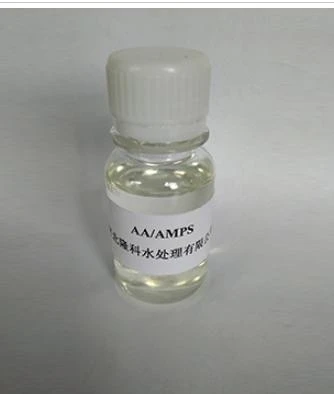 Understanding Polycarboxylic Acids: Properties, Applications, and Future PotentialPolycarboxylic acids are a versatile group of polymers widely used in water treatment, cleaning products, concrete admixtures, textiles, and even sustainable materials.អានបន្ថែម
Understanding Polycarboxylic Acids: Properties, Applications, and Future PotentialPolycarboxylic acids are a versatile group of polymers widely used in water treatment, cleaning products, concrete admixtures, textiles, and even sustainable materials.អានបន្ថែម -
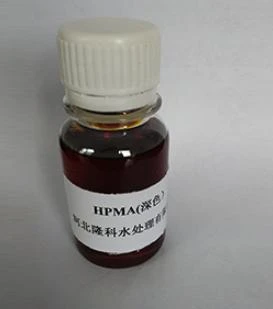 Scale Inhibitor Explained: How to Protect Your System from Limescale and Hard Water DamageIn water systems—from industrial boilers and cooling towers to household appliances—scale is a persistent enemy.អានបន្ថែម
Scale Inhibitor Explained: How to Protect Your System from Limescale and Hard Water DamageIn water systems—from industrial boilers and cooling towers to household appliances—scale is a persistent enemy.អានបន្ថែម -
 Scale and Corrosion Inhibitors: Essential Chemicals for Industrial Water System ProtectionIn industrial water systems—cooling towers, boilers, heat exchangers, pipelines, and RO systems—two silent threats can cause serious damage over time: scale formation and corrosion.អានបន្ថែម
Scale and Corrosion Inhibitors: Essential Chemicals for Industrial Water System ProtectionIn industrial water systems—cooling towers, boilers, heat exchangers, pipelines, and RO systems—two silent threats can cause serious damage over time: scale formation and corrosion.អានបន្ថែម -
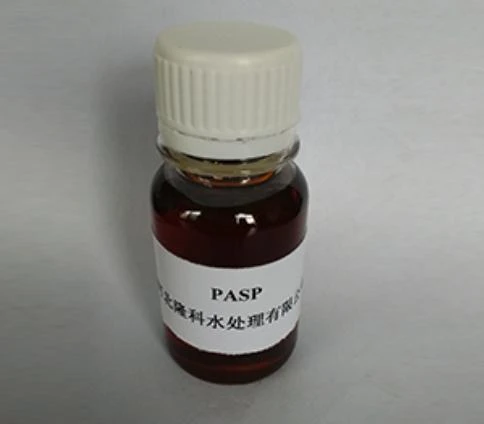 Polyaspartic Acid: A Biodegradable Polymer for Sustainable ChemistryAs industries move toward more sustainable materials, polyaspartic acid (PASP) is gaining traction across sectors—from water treatment and agriculture to coatings and biomedical applications.អានបន្ថែម
Polyaspartic Acid: A Biodegradable Polymer for Sustainable ChemistryAs industries move toward more sustainable materials, polyaspartic acid (PASP) is gaining traction across sectors—from water treatment and agriculture to coatings and biomedical applications.អានបន្ថែម







